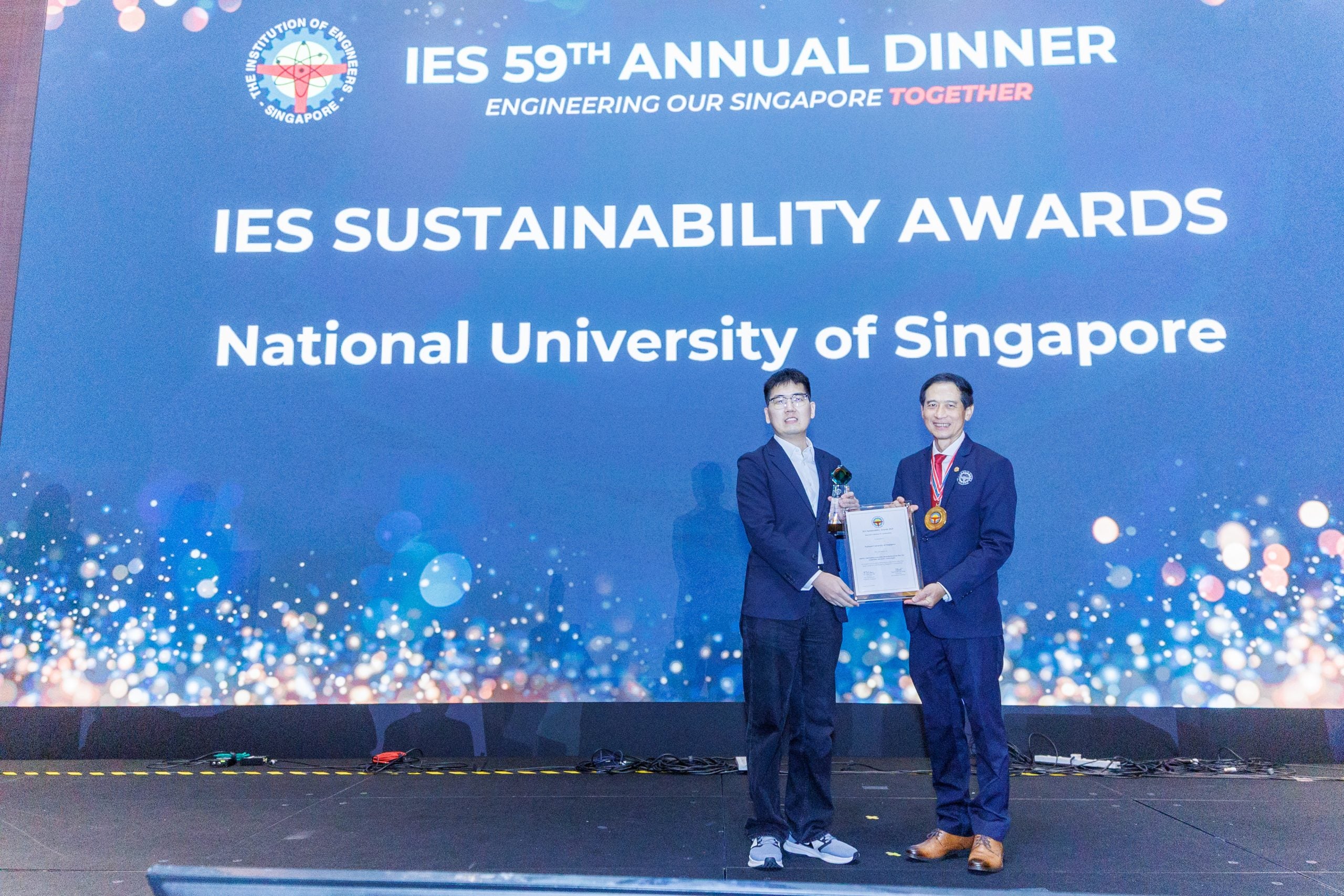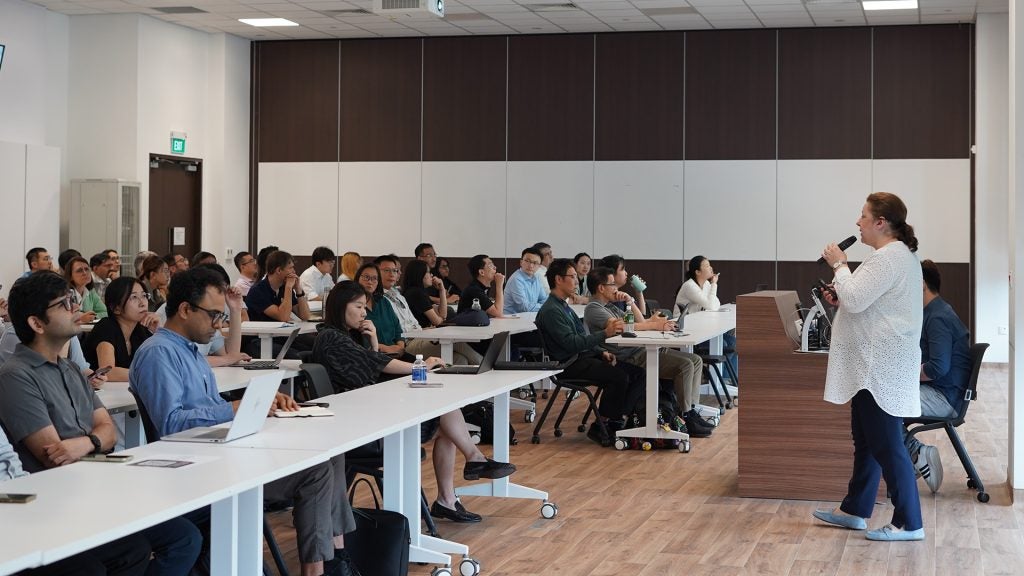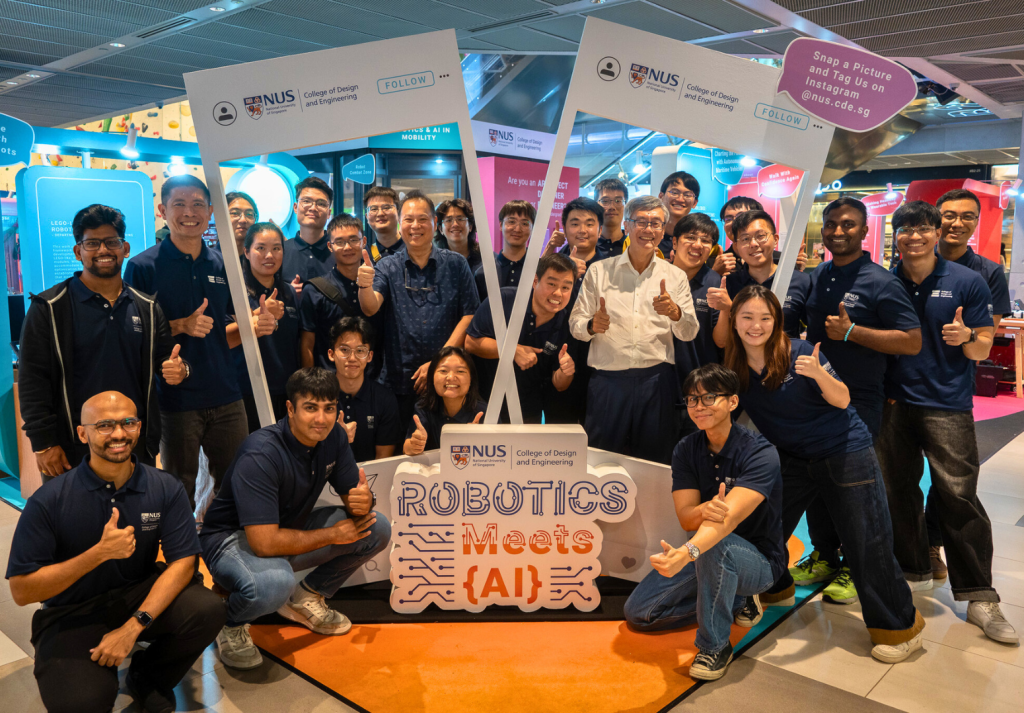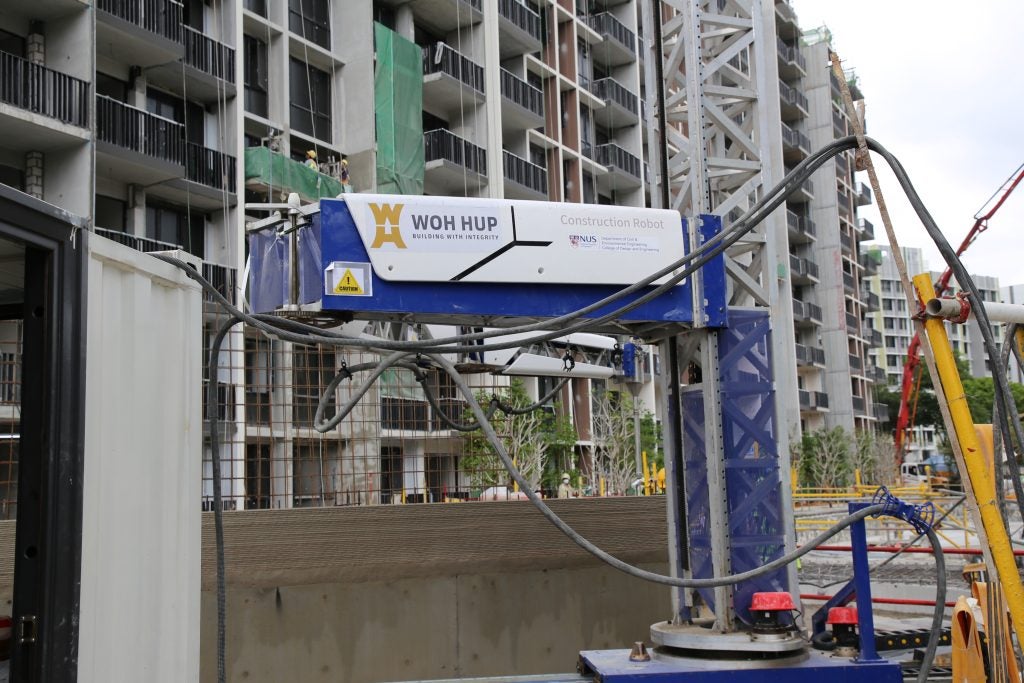
A research team led by Associate Professor Benjamin Tee (Materials Science and Engineering) has received the IES Sustainability Award 2025 from the Institution of Engineers, Singapore (IES).
The award recognises the team’s development of SHINE - a self-healing, actuatable electroluminescent fibre that advances sustainable and interactive light-emitting soft electronics.
Assoc Prof Tee said: “I am delighted to receive this IES award on behalf of my team who has worked tirelessly to push the frontiers of materials science and device engineering. As an engineer at heart who cares about sustainable technological advancements, our breakthrough light-emitting fibre aims to shine a positive light on how creative ideas and innovations could change the world.”
The SHINE (Scalable Hydrogel-clad Ionotronic Nickel-core Electroluminescent) fibre has broad applications in fields such as wearable technology and soft robotics. Its compact coaxial design delivers record brightness at low electric fields, rapid magnetic actuation, and autonomous repair across all layers. The fibre can recover function after complete severing, maintain performance for more than 10 months, and be produced in metre-long lengths for scalable use.
In the award citation, the IES described SHINE as “an outstanding engineering project that has made significant contributions to Singapore’s sustainability.” The research, published in Nature Communications, demonstrates how materials intelligence and design for longevity can translate into real environmental impact.
Assoc Prof Tee’s co-authors on the research include Fu Xuemei, Wan Guanxiang, Guo Hongchen, Kim Han-Joon, Yang Zijie, Asst Prof Tan Yu Jun and Assoc Professor John Ho from NUS and the Institute for Health Innovation & Technology (iHealthtech).





